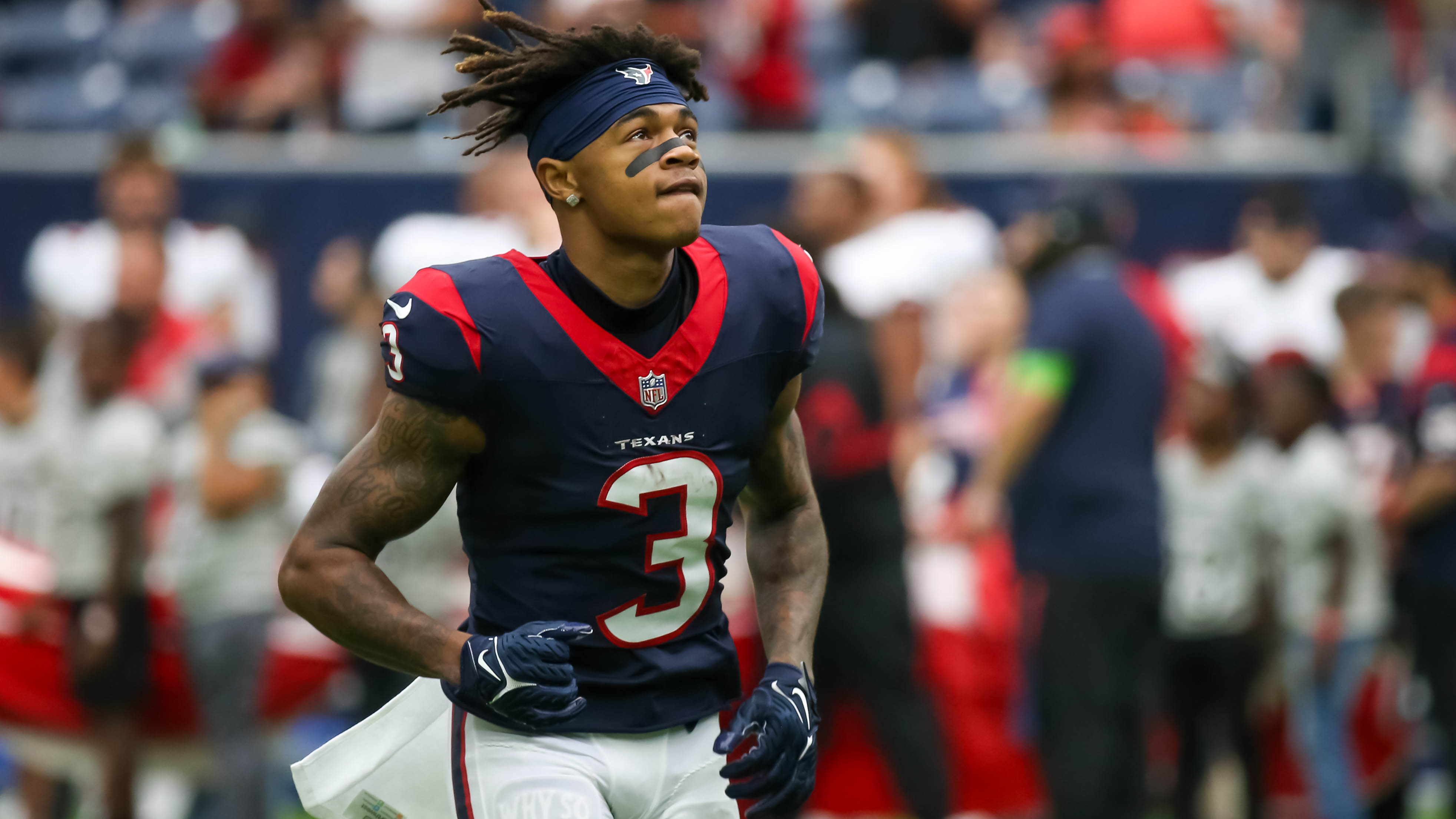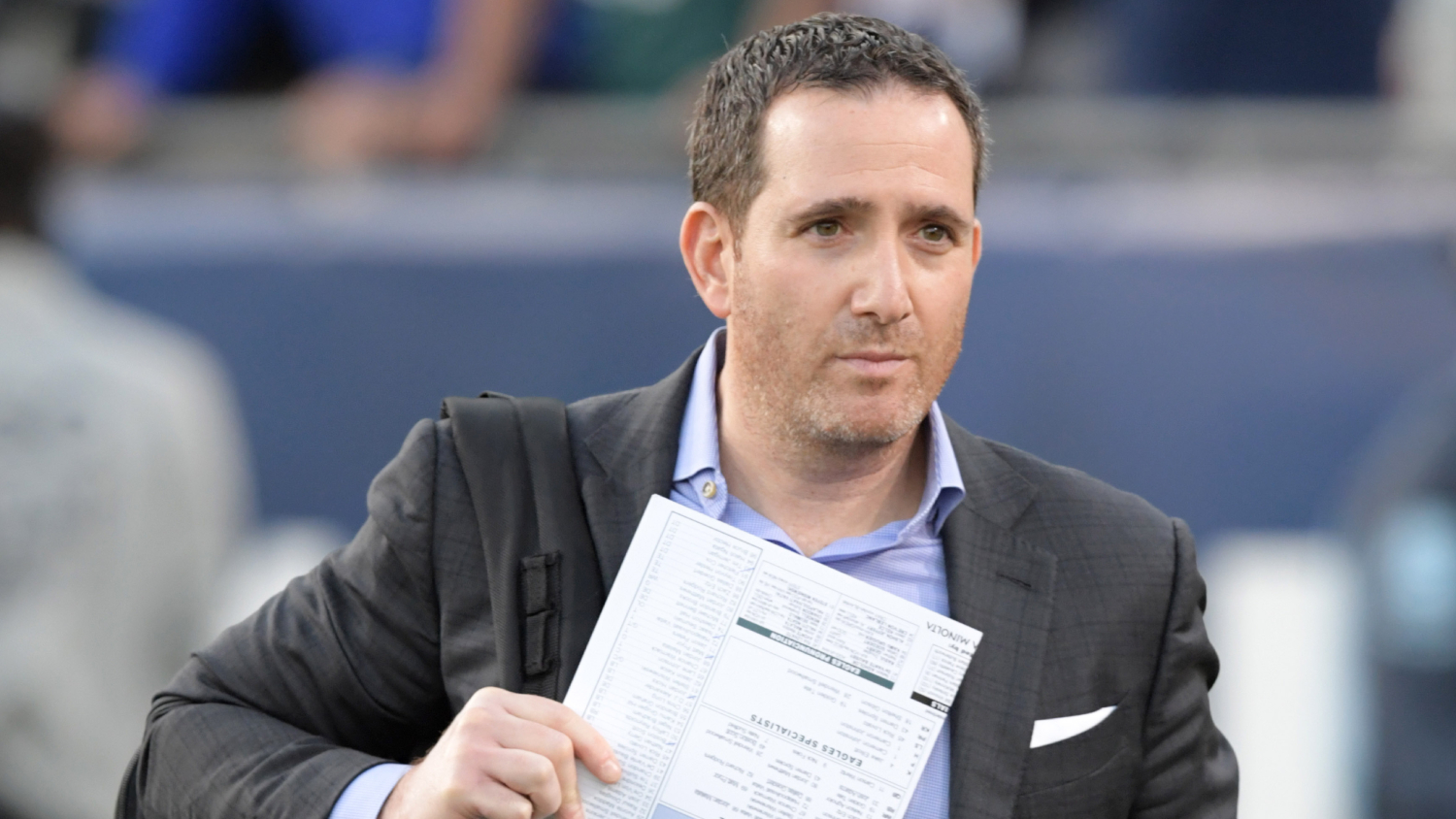Paul Hudrick's first seven-round mock draft for the Eagles in 2017 is here. In his NFL mock draft 1.0, he had the Eagles taking Washington corner Sidney Jones. With Jones suffering an Achilles injury during his pro day, the Eagles go in a different direction.
First round (14th overall (from Vikings)): Derek Barnett, DE, Tennessee, 6-3/259
Yes, I'm aware corner may be a bigger need, but with Washington's Sidney Jones suffering a torn Achilles, Barnett is the best player available that would also fit a need. Barnett accumulated 32 sacks in his three seasons at Tennessee. He could be the type of player that registers double-digit sacks consistently on the next level. Last I checked, the Eagles don't have a player like that on their roster.
Barnett isn't the twitchy, physical specimen of a pass rusher we've seen drafted recently. He wins more with brute strength and violent hands. He's not just a one-trick pony either. He defends the run well, setting the edge while also making plays on the ball carrier (52 tackles for a loss in his career). He tries to make up for his lack of twitch by anticipating snap counts and will get flagged for the occasional neutral zone infraction. That's something Jim Schwartz and the Eagles will likely live with.
A popular notion is that the Eagles have to take a corner, but that type of thinking has gotten them into the trouble in the past. To grab a potentially elite pass rusher at 14 is excellent value. Much more than say, a certain Florida State running back.
Second round (43rd overall) Fabian Moreau, CB, UCLA, 6-0/206
In the second round, the Eagles get their corner. In a different draft, Moreau might be a first-round talent. In a stupid deep class, he slips to the second round. Moreau missed most of 2015 with a broken foot so he was actually a redshirt senior in 2016. He played and started every game this season and excelled. His 4.35 40 at the combine matched what you see on tape.
The obvious knock on Moreau will be his lack of interceptions. He picked off just three passes in 38 career games. More importantly, Moreau is excellent at mirroring receivers and has the makeup speed to not get beat deep. He's learning more and more how to use his athleticism. He'll give Schwartz plenty to work with. My knock on him would be that he needs to get a little stronger to contend with some of the bigger, more physical receivers in the NFL.
Third round (74th overall): Ahkello Witherspoon, CB, Colorado, 6-3/198
Again, with such a deep corner class, players are bound to get lost in the shuffle. With how great Washington's secondary was this year, Colorado's fantastic back end might have been overlooked in the Pac 12. Witherspoon played on the other side of Chidobe Awuzie, arguably the best corner in the conference not named Sidney Jones. Tested frequently on the opposite side, Witherspoon only had one pick but registered 19 passes defended. Proof that he was tested often and passed those tests.
NFL
Witherspoon has prototypical size, but he also showed he can compete with faster, quicker receivers like Washington's explosive John Ross. I see Moreau and Witherspoon as an intriguing tandem. Neither player is excellent in the run game, so be prepared for a missed tackle or two. But before you moan and groan, remember that a corner's primary function is to cover receivers. Both of these guys do that well.
Fourth round (119th overall): Carlos Henderson, WR, Louisiana Tech, 5-11/199
Henderson is explosive and quick. His 40 time wasn't elite (4.46) but he shows plenty of game speed. He's coming out early after having a monster junior season, hauling in 82 catches for 1,535 yards and 19 receiving touchdowns. He's also a dangerous kick returner, taking two returns to the house last season.
He's small and his level of competition wasn't great. He's not the greatest route runner either, but he'll have time to develop behind Alshon Jeffery, Torrey Smith and Jordan Matthews. With Matthews not having a contract for next season, Henderson could be an ideal replacement for a more traditional slot. Henderson is excellent in the screen game and at making people miss in tight quarters.
Fourth round (139th overall (from Browns)): Wayne Gallman, RB, Clemson, 6-0/215
Gallman seemed to be the player lost in the shuffle in Clemson's star-studded offense. He had a huge sophomore season running for 1,514 yards on 282 carries. His numbers dipped a little in 2016 because the team didn't want to overuse him. He's got the ideal size and a nose for the end zone (30 rushing TDs last two seasons combined).
The knocks on Gallman are his lack of footwork and patience. From watching him, I'd say these concerns are slightly overblown. The Eagles are lacking a back with his physical mentality and toughness. He also has decent hands out of the backfield.
Fifth round (155th overall): Tanzel Smart, DT, Tulane, 6-1/296
It's always tougher to project guys from smaller schools to the NFL, but Smart certainly produced at Tulane. Smart's numbers went up every season. During his senior year, Smart registered 5 1/2 sacks and 19 tackles for a loss. His most impressive game was probably against Houston, who was ranked for a good chunk of the season. In the loss, Smart recorded 1 1/2 sacks, 3 1/2 tackles for a loss and seven total tackles.
Smart is a little smaller and will get pushed around a bit by bigger guards. He's better playing more of an attacking style. He struggles when he's asked to hold blockers up. With Bennie Logan headed to Kansas City, the Eagles seem committed to using the 327-pound Beau Allen on early downs. Smart could provide another option for Schwartz to get an inside push on third down.
Sixth round (194th overall): Jalen Robinette, WR, Air Force, 6-3/220
Coming from an offense that runs a ton of read option, Robinette still managed to post 959 yards on 35 catches. That's an insane 27.4 yards a catch. He also caught six of the Falcons' 14 touchdown receptions. Robinette benefitted greatly from play action, seeing a lot of man coverage and using his size and strong hands to outmuscle defensive backs for the ball.
I'm not sure if Robinette can run good routes. I'm not sure if Air Force even has a route tree. Behind more accomplished receivers, Robinette will have the opportunity to learn the nuances of the position under new receivers coach Mike Groh. His 40 time wasn't impressive (4.62), but his ball skills and size are intriguing.
Seventh round (230th overall): Tedric Thompson, S, Colorado, 6-0/204
Another part of Colorado's underrated secondary, Thompson was tied for third in the country with seven interceptions. He's a ballhawking safety with cover skills and strong instincts.
He's not physically imposing or a big hitter. Colorado had him sort of interchange between strong and free safety. In the NFL, he'd be much better served to be a centerfielder and showing off his ball skills. Thompson falls here because of his physical profile, but his seven interceptions weren't an accident. The Eagles used a third safety a lot, having Jaylen Watkins come in with Rodney McLeod while Malcolm Jenkins went down to the slot. Having a player like Thompson out there could lead to more turnovers.


